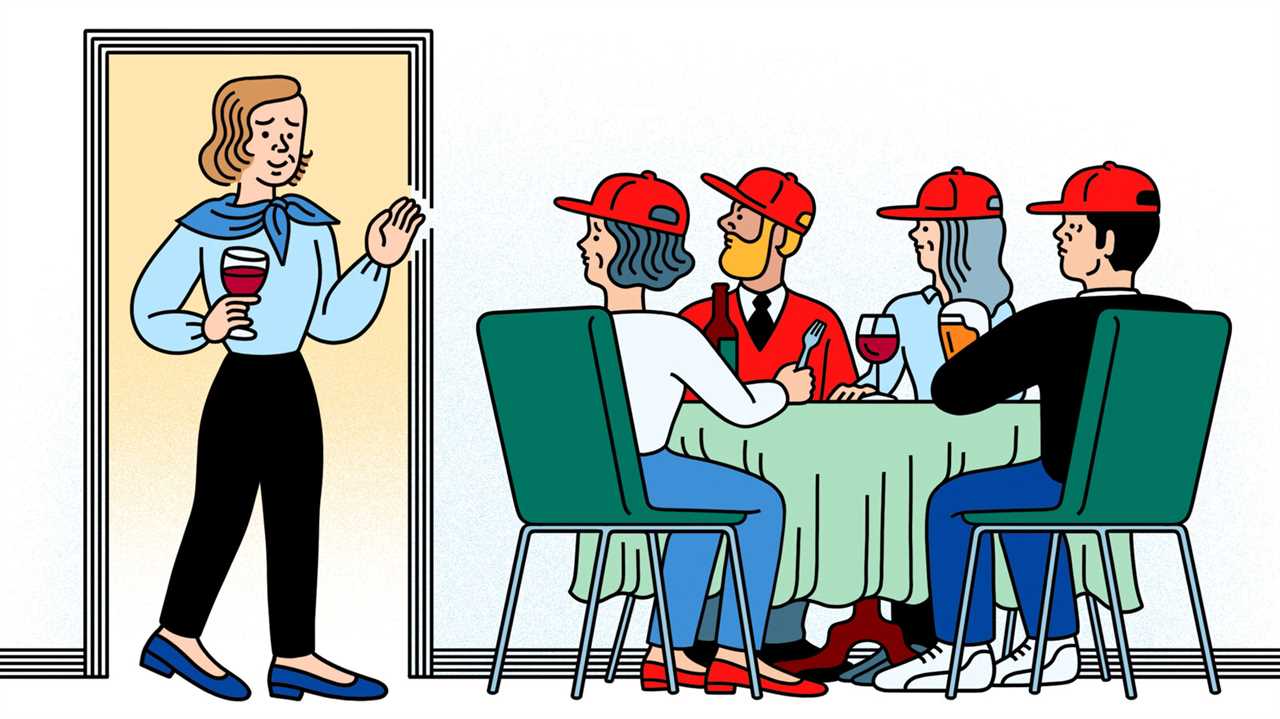
Mimi B. Osiason
In a democracy, we the people are supposed to be guiding the ship of state together. To do that, we need to be able to talk to one another, which suggests that engagement, rather than confrontation, can be a civic act. It can also be an act of friendship, because one thing we want to do is to save our friends from making serious mistakes. Just bear in mind that listening in these circumstances is as important as talking.
The polarized state of our politics, alas, means that people are so taken up with their political identities that they’re unable or unwilling to consider the views of those outside their political tribe. Conversations on these topics tend to turn up the temperature while dimming the lights. And, given your principles, it’s easy to assume that your Trump-loving friends are morally defective — that they don’t take cruelty, xenophobia, intemperance, narcissism and dishonesty with due seriousness.
Perhaps that’s the case. But perhaps the gulf between you and these friends arises from differences in your epistemic capacities — the ability to gain reliable information. Our beliefs depend not just on our own brains but also on the social worlds we live in. One way of capturing this truth is what some philosophers have called the extended-mind hypothesis: Our minds don’t simply repose between our ears (the argument goes) but extend into the world around us, a world that may or may not include Fox News, Parler, talk radio, a voluble workplace colleague who has always seemed marvelously in the know, filtered Twitter feeds and the like. What’s obvious is that people can be epistemically disadvantaged by gaining their beliefs from social networks that are radically unreliable. We get many of our false beliefs in the same way we get true ones: by listening to the views of people we trust. You can be partially responsible for being in an unreliable network if there are signs that something is wrong and you don’t examine the possibility that it’s misleading you. But the misjudgment here may not reflect bad moral values.
Once the fog of political warfare that surrounds an election has cleared, we could discover that most of our fellow citizens are not irredeemably indifferent to Trump’s evident vices; that whatever explains their attachment to the president, it is not that they repudiate the values he does not respect. Our tribal prejudices are at their worst in moments like these. Let’s hope we can recover some measure of equilibrium and move, however stumblingly, toward a modus vivendi that entails working to see the best in one another and not just the worst. Only if we learn to overcome our fiercest prejudices can we take up the business of steering the ship of state as a people united despite our disagreements.
Name Withheld
The Association of American Medical Colleges, which has worked with its member medical schools to design the application form they use, speaks of the importance of securing access to underrepresented minorities and specifies that “underrepresented in medicine means those racial and ethnic populations that are underrepresented in the medical profession relative to their numbers in the general population.” I don’t know that you’ll get a bump up for being bisexual, notionally or actually. Still, because this question evidently invites personal comments, you can, if you wish, explain your situation just as you have here and let the institution decide.
Name Withheld
A gift of this sort can result in your having a changed relationship with this donor and trustee; it is now, in a very personal way, a relationship between benefactor and beneficiary. Your donors’ gifts contribute to your salary already, of course, but that’s mediated by the formal structures of the institution and the law. A direct gift of this kind has a different meaning. It was doubtless meant to convey gratitude and respect, but it’s also, at least potentially, a way of turning you into a personal protégé. So you need to think about what accepting the gift means for your future interactions with this person.
Assuming you’re OK with a somewhat changed relationship, you’re still left to contend with the issue you raise about equity. Is it fair that this gift goes to you and not to other staff members who could use it even more? Because board members typically have personal relationships only with senior management, they are not likely to have the kinds of bonds with the rest of the staff that lead to this kind of generosity. The truth is that philanthropic gifts generally aren’t based on need; there’s almost always a more deserving recipient. The money you give to the local art museum is money that could vaccinate children and save lives in a poor country far away. Whatever the case is for giving money to the museum in those circumstances, it can’t be that the museum has the greater need. That philanthropy is mostly not guided by a pure calculus of utility is one reason for having a public system to address the basic needs of all citizens.
Still, a gift is a gift, and — if you choose to accept it — you are free to do with it what you will. Your scruples suggest that spending the money on your own family may not reflect your moral priorities. So, knowing the challenges facing your less well-off employees, you could, as you say, use the money to help the organization. Because your gift will be tax-deductible, it’s possible that some part of the money may, in fact, end up in your pocket.
Did you miss our previous article...
https://trendinginthenews.com/usa-politics/arizona-and-wisconsin-certify-bidens-wins-the-system-is-strong






